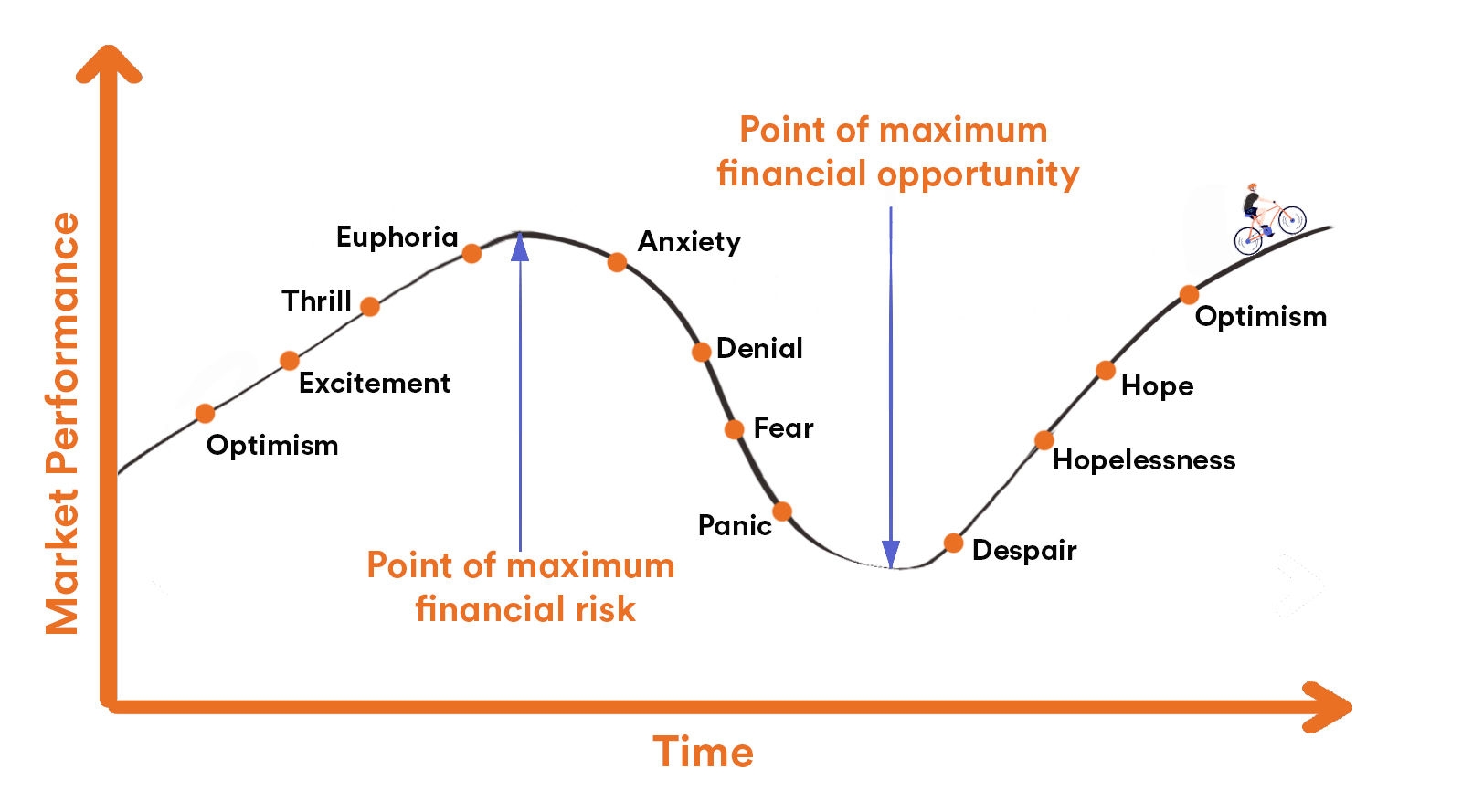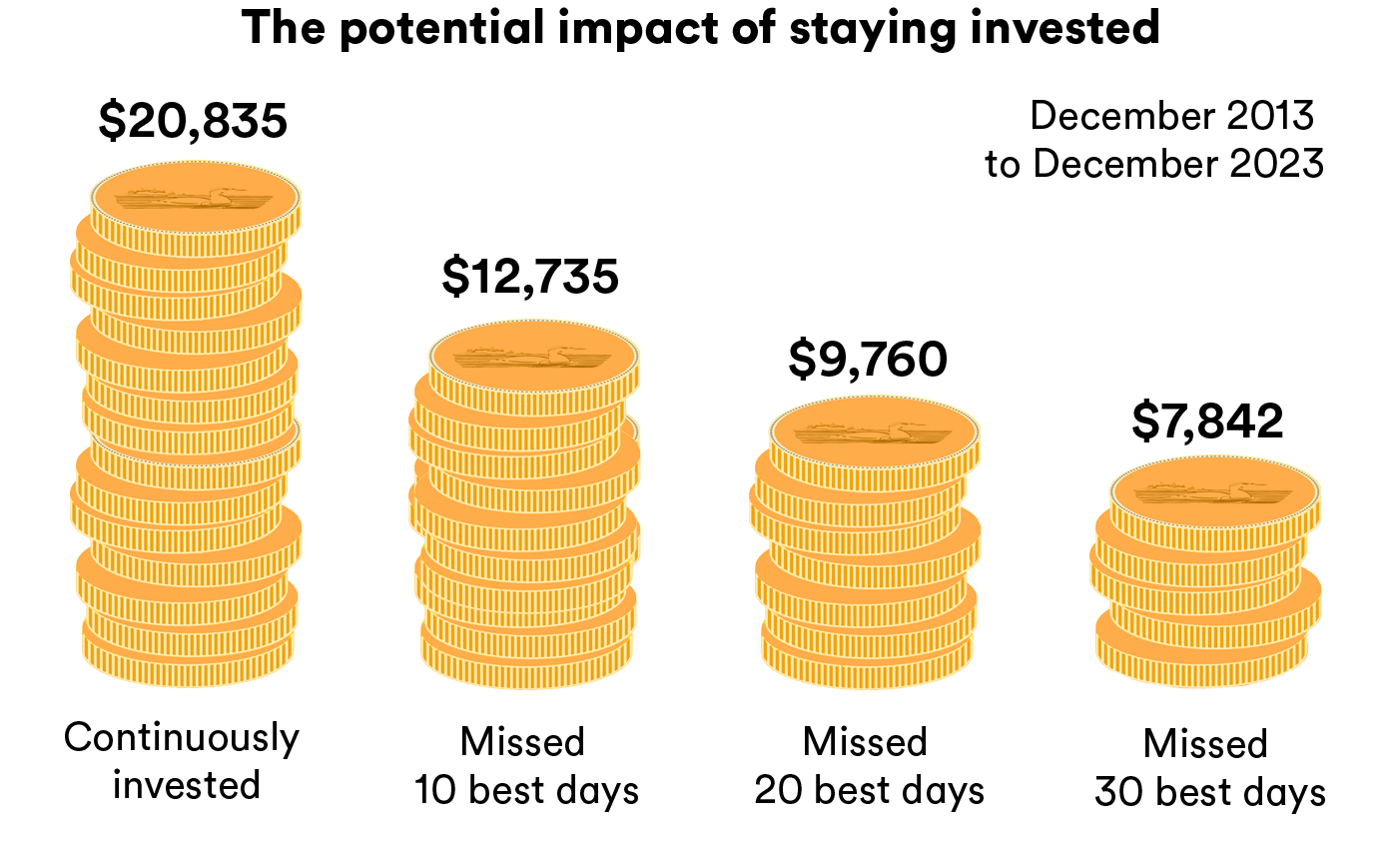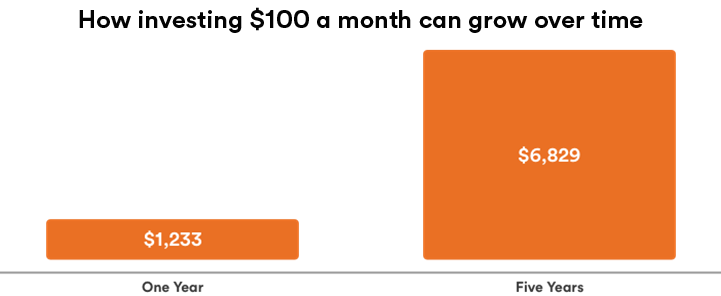Five timeless tips to navigate market volatility
Pop quiz: When a volatile market makes it hard to predict what might happen from week to week, or even day to day, what should you be doing with your investments?
Answer: Same as you always would.
Sure, you can debate the finer points on how best to capitalize on certain economic conditions, but there are a few timeless tips that never go out of fashion.
By recognizing short-term market uncertainty for what it is, you can help ensure that it doesn’t derail your long-term goals.
Here are five tried and tested principles that can help you maintain valuable perspective.
1. Stick to a plan – because markets don’t care about your feelings
Investors may feel a financial loss more acutely than a gain of the same magnitude. Without an investment plan, we leave ourselves susceptible to a roller coaster of emotions whenever markets become volatile. This can translate into poor short-term financial decisions. Having a plan for the long term can help keep the present in perspective.

The cycle of market emotions. Source: Darst, David M. (Morgan Stanley and Companies, Inc.). The Art of Asset Allocation, 2003.
2. Don’t time it, but give it time
Beware COMO — the cost of missing out.
Trying to time the ups and downs of the market is a bit like a roll of the dice. Keeping your money invested is often the better strategy over time.
Consider the impact of missing the best 10, 20, and 30 days on the value of $10,000 invested in Canadian stocks over the past 10 years.
Sitting on the sidelines can be costly. Over a 10-year period, if you’re out of the market for even a few days when the market is outperforming, you can substantially reduce your return potential.
Staying invested — while not always easy — can potentially translate into a better outcome.

The potential impact of staying invested. Source: Morningstar. For illustrative purposes only. S&P/TSX Composite Total Return Index, December 31, 2013, to December 31, 2023. It is not possible to invest directly in an index. Assumes reinvestment of all income and no transaction costs or taxes. Value of investment calculated using compounded daily returns. Missing 10, 20, and 30 best days, excludes the top respective return days.
3. Set it – but don’t forget it
When you automatically invest a fixed dollar amount on a regular basis, it's a built-in discipline that can help you avoid second-guessing your plan. On top of that, since you naturally end up buying more units when prices are low and fewer units when prices are high, this is one way you can actually take advantage of market volatility while keeping your emotions out of the equation. It's a strategy called dollar-cost averaging.

For illustrative purposes only. Assumes a monthly $100 investment, growing at 5% annual returns. Assumes reinvestment of all income and no transaction costs or taxes. All returns are compound annual returns.
4. Diversity is your strength
Diversification is a tried-and-tested technique to manage risk in your portfolio. Mix it up a little! Don’t depend on just a single type of investment — whether that’s stocks, bonds, real estate, postage stamps, or coins in a piggy bank. Even within an asset class such as stocks, it’s a good idea to diversify, rather than focusing too much on a geographic region, or a sector, like technology.
No single asset class is consistently among the top performers, and the best and worst performers can change from one year to the next.
One simple way for investors to diversify their portfolio is with a mutual fund, such as Tangerine's Portfolios, which pools money from many investors, and invests it in a broad array of stocks, bonds and other investments from multiple sectors and regions.
5. Keep fees low
Once the markets return to relative stability, it may be time to consider the value you're getting from higher-cost investments. While a fee of 1.94% may not seem like a big deal, that equals nearly $200 for a $10,000 investment. That fee can magnify short-term losses and really add up over time.

For illustrative purposes only. Assumes a $10,000 investment, growing at 5% annual return before subtracting a 1.94% fee. According to the Investor Economics Special Feature Insight Investment Funds Report dated June 2024, the asset-weighted MER for A-series mutual funds for the year ending December 2023 was 1.94%. Assumes reinvestment of all income and no transaction costs or taxes. All returns are compound annual returns.
Keep your eyes on the prize
While the news might distract us with short-term circumstances and events, this noise can throw us off track from focusing on our long-term approach.
If you're investing for the long run, remember: Markets rise and fall, but a solid plan is timeless.
Got questions about your investments?
Remember, our Tangerine Advisors are here to answer any questions and guide you on reaching your investment goals. Call us at 1-877-464-5678. We're here Monday to Friday from 8 a.m. to 8 p.m. ET.
Ready to start investing?
We’ve got simple options that keep your money working for you in the short and long term.


